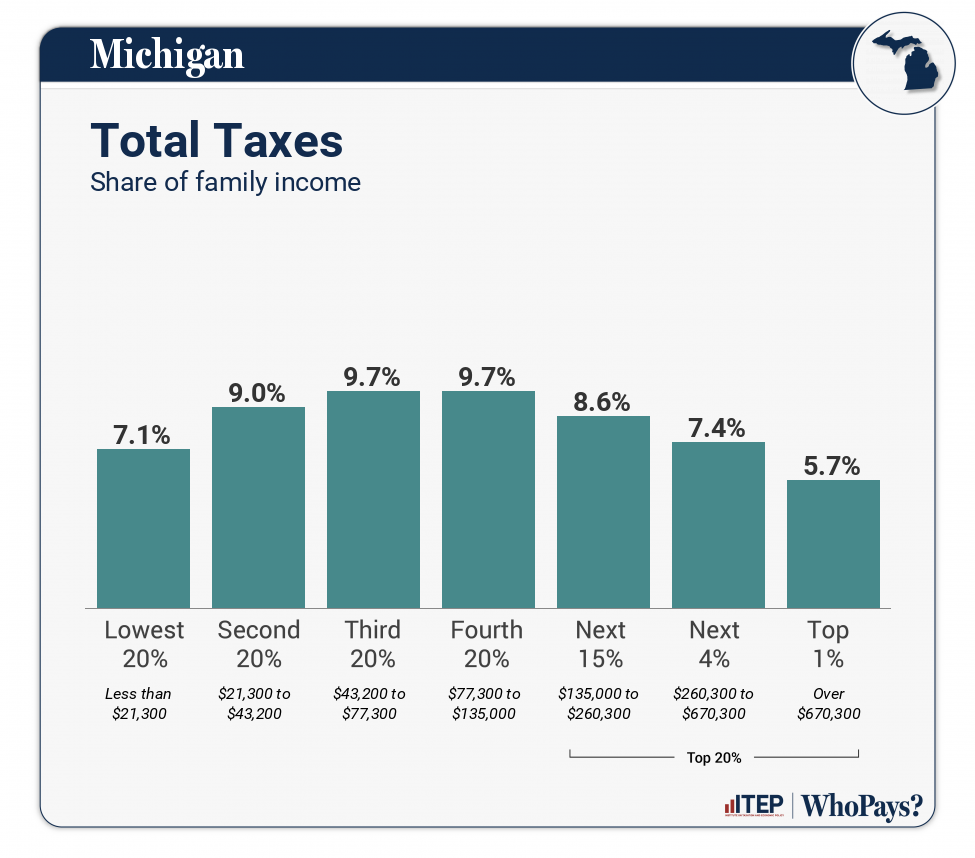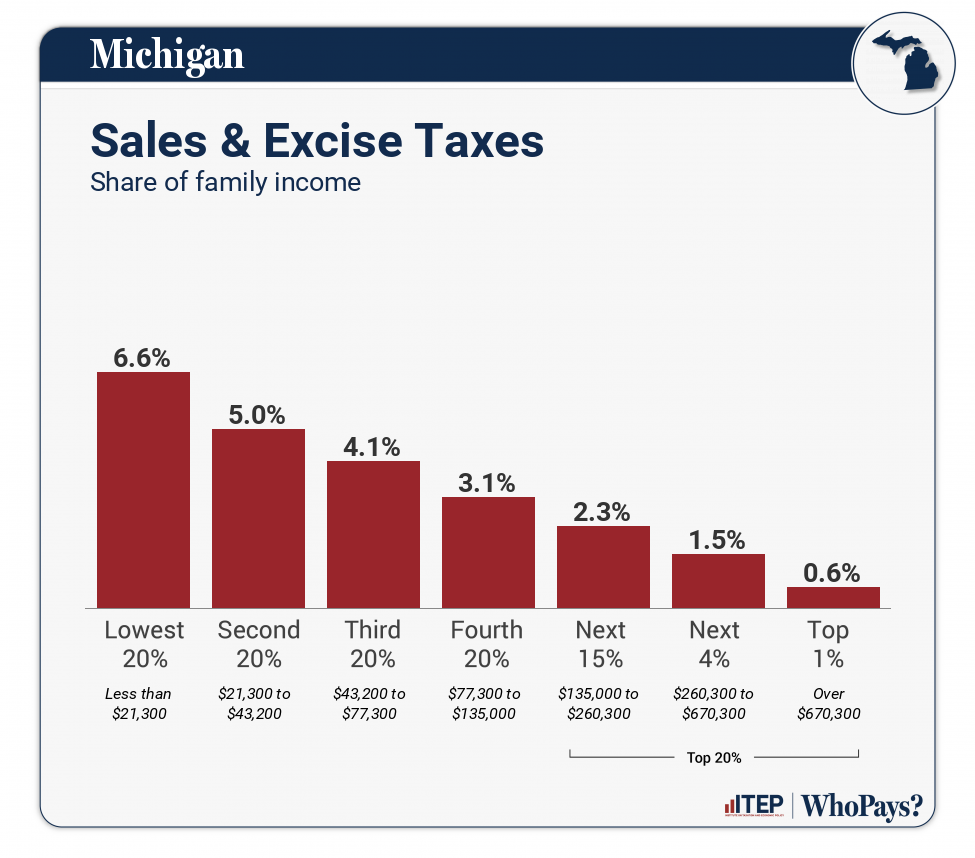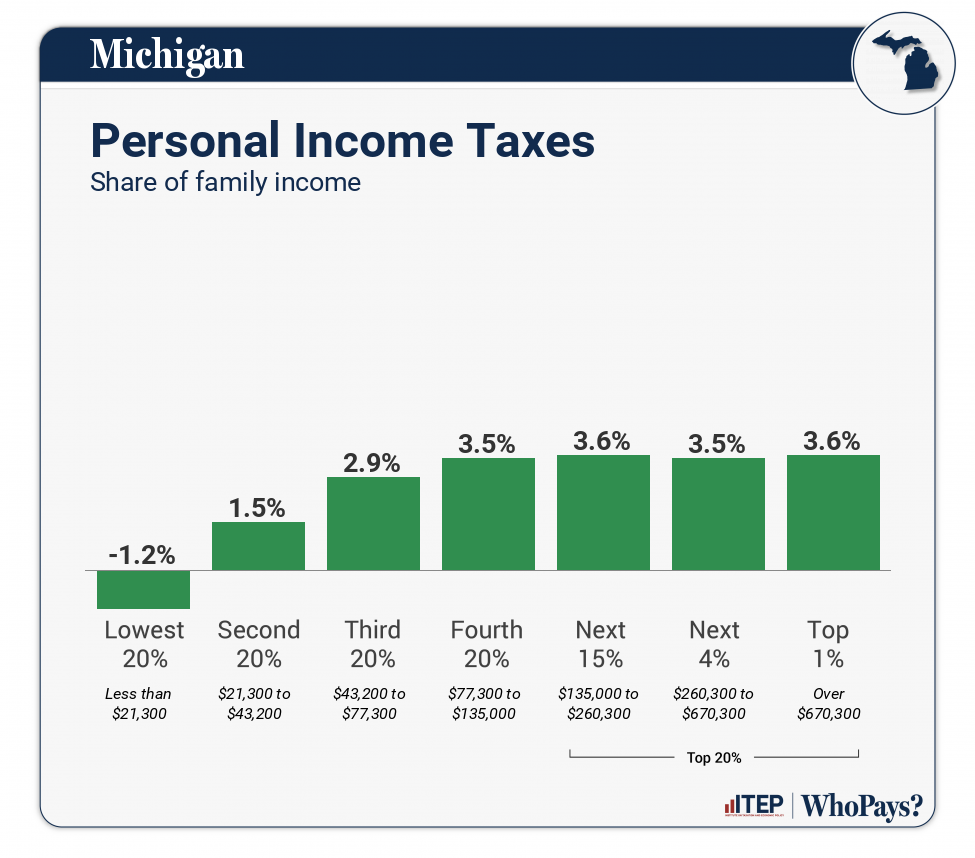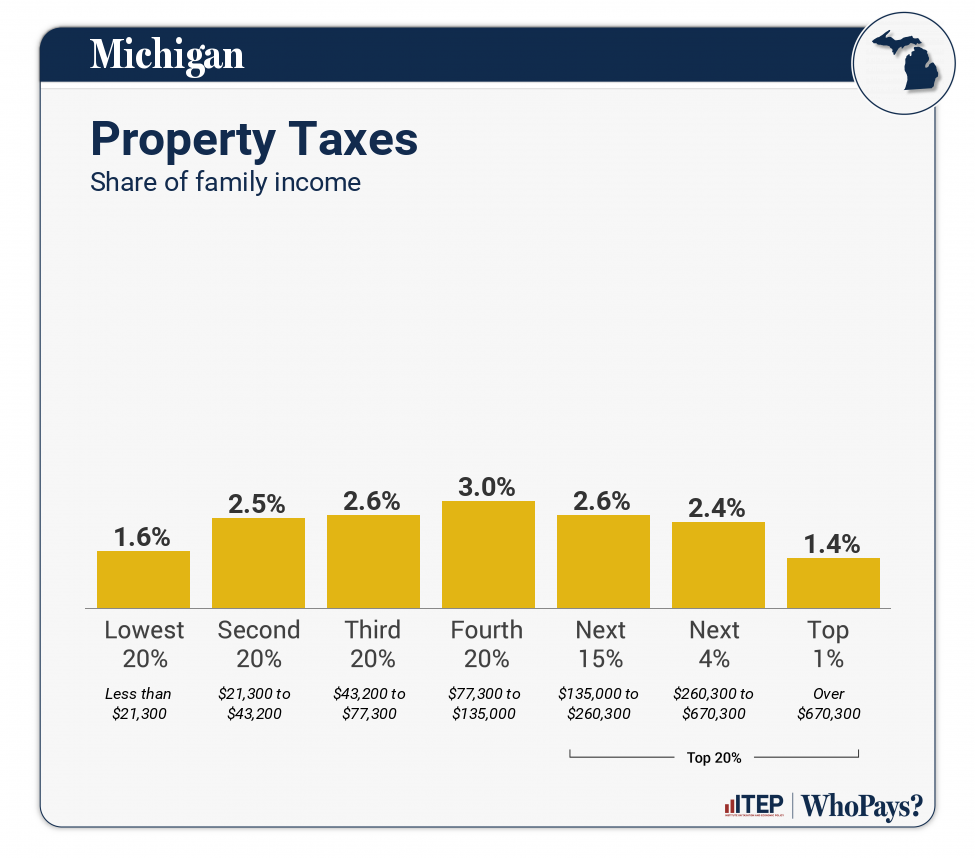
Michigan
Download PDF
State and local tax shares of family income
| Top 20% | |||||||
| Income Group | Lowest 20% | Second 20% | Middle 20% | Fourth 20% | Next 15% | Next 4% | Top 1% |
| Income Range | Less than $21,300 | $21,300 to $43,200 | $43,200 to $77,300 | $77,300 to $135,000 | $135,000 to $260,300 | $260,300 to $670,300 | Over $670,300 |
| Average Income in Group | $12,100 | $31,200 | $58,200 | $104,500 | $175,800 | $379,500 | $1,727,300 |
| Sales & Excise Taxes | 6.6% | 5% | 4.1% | 3.1% | 2.3% | 1.5% | 0.6% |
| General Sales–Individuals | 3.2% | 3% | 2.7% | 2.1% | 1.6% | 1% | 0.3% |
| Other Sales & Excise–Ind | 2.7% | 1.4% | 0.9% | 0.6% | 0.4% | 0.2% | 0.1% |
| Sales & Excise–Business | 0.7% | 0.6% | 0.5% | 0.5% | 0.4% | 0.3% | 0.3% |
| Property Taxes | 1.6% | 2.5% | 2.6% | 3% | 2.6% | 2.4% | 1.4% |
| Home, Rent, Car–Individuals | 1.2% | 2.1% | 2.4% | 2.8% | 2.4% | 2% | 0.6% |
| Other Property Taxes | 0.4% | 0.3% | 0.2% | 0.3% | 0.3% | 0.3% | 0.7% |
| Income Taxes | -1.2% | 1.5% | 2.9% | 3.5% | 3.6% | 3.5% | 3.7% |
| Personal Income Taxes | -1.2% | 1.5% | 2.9% | 3.5% | 3.6% | 3.5% | 3.6% |
| Corporate Income Taxes | 0% | 0% | 0% | 0% | 0% | 0% | 0% |
| Other Taxes | 0.1% | 0.1% | 0.1% | 0.1% | 0% | 0% | 0% |
| TOTAL TAXES | 7.1% | 9% | 9.7% | 9.7% | 8.6% | 7.4% | 5.7% |
| Individual figures may not sum to totals due to rounding. | |||||||
ITEP Tax Inequality Index
Michigan has a hybrid system that is progressive through the bottom part of the income distribution and regressive through the top part. On balance, the overall system tilts regressive because high-income families pay the lowest overall tax rates. According to ITEP’s Tax Inequality Index, Michigan has the 35th most regressive state and local tax system in the country. Income disparities between high-income taxpayers and other families are larger in Michigan after state and local taxes are collected than before. (See Appendix B for state-by-state rankings and the report methodology for additional detail.)
Tax features driving the data in Michigan
|
Requires combined reporting for the corporate income tax but excludes profits booked overseas, including in tax haven countries
Refundable property tax “circuit breaker” credit (all ages, includes renters)
Refundable Earned Income Tax Credit (EITC)
Sales tax base excludes groceries
|
|
|
Real estate transfer tax does not include higher rate on high-value sales
Does not levy a tax on estates or inheritances
Personal income tax uses a flat rate
No Child Tax Credit (CTC)
|








